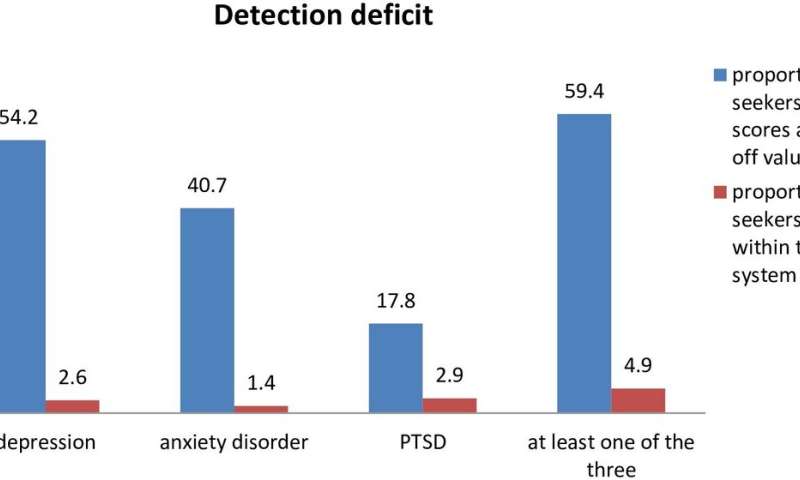
A new study of asylum seekers in Germany suggests that, among those with symptoms of depression, anxiety, or posttraumatic stress disorder (PTSD), few receive a diagnosis from the health care system, and of those diagnosed, many do not receive treatment. Amand Führer of Martin-Luther-University Halle-Wittenberg, Germany, and colleagues present these findings in the open-access journal PLOS ONE on October 7, 2020.
A large proportion of refugees around the world experience psychological problems, largely due to the adversity that prompted their migration, as well as continued stressors associated with the experience of seeking asylum in a new country. Asylum seekers appear to have limited access to psychological care, but the extent of this limitation has been unclear.
To better understand the gap between asylum seekers’ mental health needs and the care they actually receive, Führer and colleagues conducted a mental health survey of 214 randomly selected asylum seekers aged 15 or older in the city of Halle, Germany, in 2015. They compared the survey results to billing data from the local social welfare office, which revealed health care provided to all 4,107 asylum seekers aged 15 or older in Halle for that year.
The survey revealed that 54 percent of participants had symptoms of depression, 41 percent had symptoms of anxiety disorder, and 18 percent had PTSD symptoms. However, the billing data showed that only 2.6 percent of asylum seekers in Halle received a diagnosis of depression, 1.4 percent a diagnosis of anxiety disorder, and 2.9 percent a diagnosis of PTSD. About 45 percent of those diagnosed received no treatment, 38 percent received only drugs, and 1 percent received psychotherapy.
Despite some limitations of the study, these findings suggest that few asylum seekers with mental health disorders receive adequate diagnoses or treatment. The authors call for urgent, systematic efforts to address these shortcomings and improve mental health care for asylum seekers.
Source: Read Full Article
